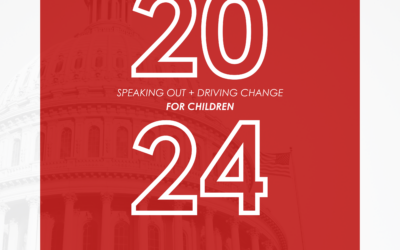
By Jarret Guajardo
Children’s mental health is a key element of child wellbeing, one that is too often neglected. Before the COVID-19 pandemic, one in five US children aged 12-17 had experienced a major depressive episode, 37% of high school students had reported feeling persistently feeling sad or hopeless in the past year, and one in five had seriously considered attempting suicide.
However, the effects of the pandemic have now intensified children’s mental health challenges. The causes of these increased challenges include disruption of routine, stress in the household, schooling disruption, missed significant life events, illness or death of loved ones, restricted opportunities to socialize with peers, reduced access to mental health services, high levels of solitary substance use, among other factors. As one alarming indicator, the likelihood of a recent suicide attempt were 1.6 to 2.3 times higher in February – April 2020 compared with the same months in 2019 among Texan youth ages 11-21 years admitted to a pediatric emergency department.
In fact, worldwide estimates of child anxiety and depression have doubled during the pandemic. There is no reason Texas would be an exception. Mental Health America ranks Texas 41 out of 51 states/districts due to our state’s higher rates of youth mental illness and lower access to care. As one example, in 2018-19 73% of Texan children aged 12-17 with major depression did not receive treatment, well above the national average of 60%. It doesn’t help that Texas has 880 residents for every one mental health service provider, ranking the state last in the country.
Given these challenges, how can we ensure children are better supported? At the school level, there are important roles for counseling and crisis response teams, as well as telehealth services such as TCHATT. However, caregivers themselves can play a crucial role in supporting their child’s mental health in two important ways.
First, caregivers can educate themselves to recognize the signs of mental health challenges. These signs include:
- Long-lasting, major changes in thinking such as more frequent nightmares, saying negative things about themselves or blaming themselves for things beyond their control, trouble concentrating, frequent negative thoughts, or changes in school performance.
- Long-lasting, major changes in feelings such as disproportionate reactions to minor events; excessive worry or avoidance of activities; or feeling helpless, hopeless, lonely, or rejected.
- Long-lasting, major changes in behavior such as spending much more time alone, showing much less interest in things they once enjoyed, sudden bursts of emotion or aggression, excessive defiant behavior, falling back to less mature behaviors (such as bed wetting), and trouble getting along with friends.
- Long-lasting, major physical changes such as lack of energy / feeling tired all the time, sleeping or eating problems, too much energy; or nervous habits such as nail biting, hair twisting, or thumb sucking.
Don’t worry if you notice one of these changes for a short period of time, or if the change is small. Mental health challenges are more likely when the change is large, continues for a long period of time, and impacts your child’s ability to function normally. If this is the case, speak with your pediatrician. Mental Health Texas also has links to many additional resources for children. If, however, your child talks about suicide or harming themselves, immediately call the suicide prevention lifeline at 800-273-8255 (800-273-TALK), or any one of these local hotlines.
Second, there are many everyday things caregivers can do keep their child’s mental health strong. The most frequently-mentioned strategies across a survey of websites* include:
-
- Talk to your children about their feelings, your feelings, and model positive coping mechanisms (for example: breathing, counting to ten, thinking positive thoughts, exercising, journaling, etc.). Talking about feelings will help children understand how natural it is to have emotions, and grow their ability to be in tune with and process emotions.
- Encourage your children to develop social connections, positive relationships with peers and community members, and a sense of belonging. Feeling connected to others is one of the best ways to stay mentally healthy, and gives your child more people to turn to when they need help.
- Talk regularly, openly, and honestly with your child. Practice active listening with them. It is important for your child to feel they can come to you with any concern or fear.
- Structure your child’s life with healthy boundaries and predictable routine. This will help limit the amount of uncertainty and disruption in your child’s life, and give your child a more sturdy foundation to face challenges when they do arise.
- Encourage healthy physical habits in your child, such as regular physical activity, plenty of sleep, nutritious eating, and limited screen time (outside of educational uses). The body and mind are closely connected, and healthy habits in one can help keep the other strong.
- Finally, it is important to allow children to experience moderate amounts of boredom, adversity, distress, and failure (this should, of course, be done in a supportive, safe, and loving environment). Boredom, adversity, distress, and failure are all a natural parts of life. By learning to overcome moderate challenges, children learn how to cope in healthy ways. They build the tools and strategies they need to face future challenges, while growing their empathy for others who also face challenges.
Just like physical health, all people – adults as well as children – face at least some mental health challenges in life. This is normal, and by practicing the above strategies you can give your child a better chance of overcoming these challenges before they grow into more serious problems that require professional help. And equally as important, don’t forget to tend to your own mental health! Taking care of your mind as you do your body will help both you and your child better navigate life’s ups and downs, and help you get more enjoyment out of life together.
*Websites for caregiver strategies to support their child’s mental health:
- https://centerstone.org/our-resources/health-wellness/7-tips-for-parents-to-support-their-childrens-mental-health/
- https://www.nasponline.org/resources-and-publications/resources-and-podcasts/mental-health/prevention-and-wellness-promotion/supporting-childrens-mental-health-tips-for-parents-and-educators
- https://www.childrens.com/health-wellness/how-to-nuture-your-childs-mental-health#:~:text=Parents%20can%20nurture%20a%20child’s,habits%20and%20modeling%20positive%20behavior
- https://caringforkids.cps.ca/handouts/mentalhealth/mental_health
- https://www.cdc.gov/healthyyouth/mental-health/index.htm
MORE LIKE THIS
Bexar County Child Health Initiative Report 2026
CHILDREN AT RISK (C@R), Family Service, and the Baker Institute for Public Policy at Rice University partnered to launch the CHI in response to Community Health Needs Assessments that signaled poor mental health, nutrition, and hightened rates of chronic disease for...
Press Conference: Healthcare Costs Set to Rise for All Children and Families
Over a million Texans are on the brink of losing their healthcare coverage, skyrocketing costs in healthcare for all Americans Media Contacts:Morgan Gerri, 832.600.9354Rashena Franklin, 713.301.4577 TEXAS (November 20, 2025) – Texas already ranks as the highest...
C@R Releases Family Support Agenda
Amidst rollbacks of social support systems and mass policy change, many families report significant barriers keeping them from choosing to grow their family. Media Contacts:Morgan Gerri, 832.600.9354Rashena Franklin, 713.301.4577 TEXAS (AUG 5, 2025) - Birth rates in...
Virtual Press Conference: CHILDREN AT RISK and Community Leaders on the Future of the Child Tax Credit
C@R and researchers, family policy experts, and community leaders will hold a press conference urging Congress to ensure that any revisions to the Child Tax Credit (CTC) maintain its proven support for working families. Media Contacts:Morgan Gerri,...
2024 Annual Report
Dear Friends and Advocates, At CHILDREN AT RISK, we believe that every child deserves a fair shot at success—and we know that it takes all of us to make that happen. Whether you’re a policymaker, educator, donor, volunteer, or advocate, your partnership has helped...




